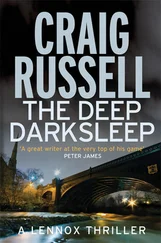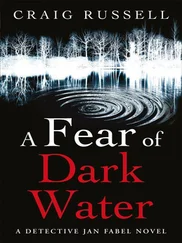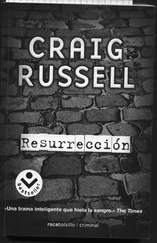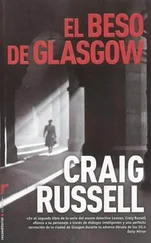Craig Russell - The Valkyrie Song
Здесь есть возможность читать онлайн «Craig Russell - The Valkyrie Song» весь текст электронной книги совершенно бесплатно (целиком полную версию без сокращений). В некоторых случаях можно слушать аудио, скачать через торрент в формате fb2 и присутствует краткое содержание. Жанр: Триллер, на английском языке. Описание произведения, (предисловие) а так же отзывы посетителей доступны на портале библиотеки ЛибКат.
- Название:The Valkyrie Song
- Автор:
- Жанр:
- Год:неизвестен
- ISBN:нет данных
- Рейтинг книги:5 / 5. Голосов: 1
-
Избранное:Добавить в избранное
- Отзывы:
-
Ваша оценка:
- 100
- 1
- 2
- 3
- 4
- 5
The Valkyrie Song: краткое содержание, описание и аннотация
Предлагаем к чтению аннотацию, описание, краткое содержание или предисловие (зависит от того, что написал сам автор книги «The Valkyrie Song»). Если вы не нашли необходимую информацию о книге — напишите в комментариях, мы постараемся отыскать её.
The Valkyrie Song — читать онлайн бесплатно полную книгу (весь текст) целиком
Ниже представлен текст книги, разбитый по страницам. Система сохранения места последней прочитанной страницы, позволяет с удобством читать онлайн бесплатно книгу «The Valkyrie Song», без необходимости каждый раз заново искать на чём Вы остановились. Поставьте закладку, и сможете в любой момент перейти на страницу, на которой закончили чтение.
Интервал:
Закладка:
‘You’re kidding…’
‘No joke. And a lot more are borderline. We’ve all known someone who is totally egomaniacal. The husband who dumps his wife of twenty years along with his kids without a second thought. Or the business boss who sacks loyal workers without a twinge of conscience… A lot of people we consider self-centred arseholes are often psychopathic. They have a piece of their make-up missing. The majority of psychopaths in society manage to fit in and never become involved in criminal or overtly antisocial behaviour.’ Susanne took a sip of her coffee. ‘You know we were talking about Irma Grese, the Bitch of Belsen? Well, maybe that’s a perfect example of someone who could have gone through life and had a perfectly normal existence. That’s the danger, Jan, that when someone like Hitler comes along he can tap into that one per cent of the population. When you have a core of people who are incapable of feeling guilt or remorse, and who possess absolutely no capacity for pity or compassion or empathy for other human beings, you can persuade them to do almost anything.’
‘And Margarethe is one of those people?’
‘Not quite. There’s nothing borderline with Margarethe. Kopke says she’s a true sociopath and, quite unusually, she’s suffering from a dissocial personality disorder, rather than an antisocial personality disorder.’
‘What’s the difference?’ asked Fabel.
‘Mainly that she can function, or seem to function, more normally. Dissocial sociopaths don’t get into trouble to the same degree — delinquency, criminal behaviour, that kind of thing — as the antisocial type. And they’re better at disguising their behaviour. She won’t have sought out opportunities to act antisocially, but she will act without pity to get or do whatever she wants. The main thing is she has absolutely zero empathy for other human beings. She is simply incapable of simulation… imagining that other people have feelings or even the same kind of consciousness as she does.’
‘Ideal for a professional assassin,’ said Fabel.
‘Not really. As you’ve experienced yourself, the typical individual with full dissocial personality disorder has an extremely low violence threshold. So does an antisocial, for that matter. If everything she has claimed about the Stasi training is true — and bear in mind all sociopaths are inventive, compulsive liars — then her trainers would no doubt have identified her instability and dropped her from the programme. Another trait of the disorder, unfortunately for Drescher, is the tendency to pin the blame or responsibility for their failures on others. Combine that with a tendency towards obsession, and you’ve got the ultimate stalker from hell. Kopke believes that in Margarethe’s case there’s co-morbidity with another personality or even a schizoaffective disorder… or maybe it’s to do with the neurological damage done in childhood. Something that makes her even more focused and obsessive. Her belief that her sister exists, and the way she allows the sister to speak and act through her, isn’t psychopathic, it’s psychotic. Delusional. In Margarethe we have something extra going on in the mix: sociopathy with a twist.’
Fabel looked through the window, out across the treetops. The sky was heavy and grey. ‘Do you think the other so-called Valkyries will be similar? Sociopaths, I mean?’
Susanne shrugged. ‘To take human life for money doesn’t show a lot of empathy for others. But sociopaths are egomaniacal, narcissistic and extremely impulsive. I’m guessing that these women who were trained as professional assassins had a high degree of self-discipline and were willing to subordinate their will to that of others. But that doesn’t make them any less dangerous. The opposite, in fact.’
‘I don’t want you sitting in on the interview, Susanne,’ said Fabel. ‘You can watch from the other room through the CCTV.’
‘That’s no good, Jan. I need to be able to observe her closely. And I want to be able to ask her questions. Surely you will have her restrained this time?’
‘Okay… but if she kicks off again, you leave right away. I’ll have extra bodies in there with us.’
Susanne’s perfect porcelain smile had a hint of wickedness about it. ‘I don’t know, Jan… you’re going to have to learn to deal with your fear of women or I’m going to end up a permanent chaperone.’
Fabel, Susanne and Anna Wolff were seated in the interview room before Margarethe Paulus was brought in. Karin Vestergaard, Werner and others from the Murder Commission team were in the connecting room, watching on closed-circuit TV.
When Margarethe was brought in by two uniformed officers, her wrists braceleted in Speedcuffs, her strong, attractive face was as impassive as it had been before.
‘Sit down, Margarethe.’ Fabel indicated the floor-fixed chair. One of the officers unfastened her Speedcuffs, only to use them again to fix her right hand to the metal securing loop on the table. A tall woman of about forty took the seat next to Margarethe. She was Lina Mueller, the state-appointed attorney.
‘This is Frau Doctor Eckhardt,’ said Fabel, gesturing towards Susanne, ‘from the Institute for Judicial Medicine. She is a criminal psychologist and she has spoken to Dr Kopke, who of course you know. Frau Doctor Eckhardt will have some questions for you. You will have already spoken to Frau Mueller, who is here to represent your interests.’
‘I don’t need a lawyer,’ said Margarethe. Again it was a simple statement of fact, made without resentment or anger.
‘We feel you should have one present,’ said Anna. ‘It’s your right.’
Margarethe didn’t respond, in voice or expression.
‘What is your name?’ asked Fabel.
‘I am Margarethe Paulus.’
‘But you told Herr Fabel earlier that you were Ute Paulus,’ said Anna.
‘You are confusing me with my sister,’ said Margarethe. ‘Ute is my sister’s name.’
‘Where is your sister right now?’ asked Susanne.
Margarethe gazed at the small, reinforced-glass window. ‘My sister is resting. She is waiting for me.’
‘Where is she waiting?’ asked Susanne. Margarethe remained silent. Inanimate.
‘Margarethe,’ said Fabel, changing tack. ‘There are a number of killings that have taken place in Hamburg since you escaped from the hospital. I would like to ask you what you know about them. Do you understand?’
‘I have an IQ of one hundred and forty,’ said Margarethe. ‘Dr Kopke has probably already told you that. There is not a question you are capable of asking that I would be incapable of understanding.’
‘Okay, Margarethe. I’m impressed, if it’s important to you that I am impressed. Let’s start with the most recent murder. Robert Gerdes.’
‘You know by now that Robert Gerdes was not his real name. It was Georg Drescher. And it wasn’t murder, it was an execution. I told your colleagues when I phoned that I had executed Drescher.’
‘So it was you who tortured and killed him? It wasn’t your sister?’ asked Susanne.
‘We both did. Ute tracked him down and found him. She kept her promise. She promised me she would make it all right for me, and she did. But when we killed him we acted together. We were one.’
‘Why the torture?’ asked Susanne. ‘All that terrible pain. What did he do to you to have deserved that?’
Margarethe sat mute. Fabel repeated Susanne’s question, but it was as if Margarethe could not hear him. Fabel had years of experience of silences in interviews: he had learned to read them, interpret them. Sometimes a suspect’s refusal to speak said more than their answers. This was different. It wasn’t a silence, it was a complete shutting down of all responses. He knew then with absolute certainty that Margarethe would answer only those questions that suited her. He just hoped that he would get enough from her to start putting what had happened into some kind of understandable context.
Читать дальшеИнтервал:
Закладка:
Похожие книги на «The Valkyrie Song»
Представляем Вашему вниманию похожие книги на «The Valkyrie Song» списком для выбора. Мы отобрали схожую по названию и смыслу литературу в надежде предоставить читателям больше вариантов отыскать новые, интересные, ещё непрочитанные произведения.
Обсуждение, отзывы о книге «The Valkyrie Song» и просто собственные мнения читателей. Оставьте ваши комментарии, напишите, что Вы думаете о произведении, его смысле или главных героях. Укажите что конкретно понравилось, а что нет, и почему Вы так считаете.












